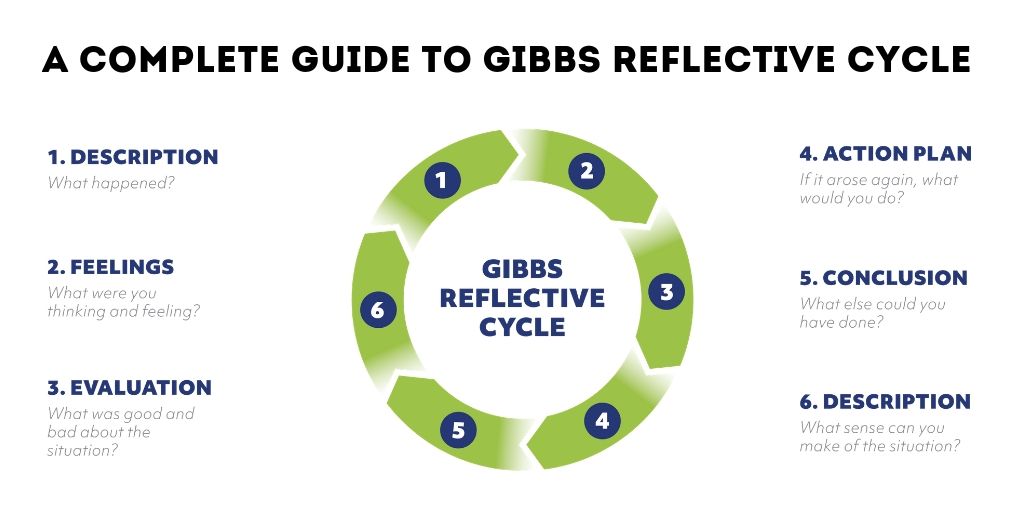
Gibbs Reflective Cycle model was developed by the American Psychologist and sociologist Graham Gibbs. He first introduced this model in his book "Learning by doing" in the year 1988. This reflective nursing cycle gives structure to learn from experiences. If you are a medical student and asked to write an assignment for Gibbs reflective Cycle nursing, you must have adequate knowledge about this.
Also, there could be issues faced while writing assignments for Gibbs reflective cycle nursing but don't worry because Sample Assignment, the best online assignment help in Australia is available to help you out. They are offering assistance towards completing assignments accurately. However, a student must know a few general details about the Gibbs Reflective Cycle Nursing. There are a total of six steps in the Gibbs Model of Reflection. Let's discuss all these steps in detail with our nursing assignment experts.
Elements of Gibbs Reflective Cycle
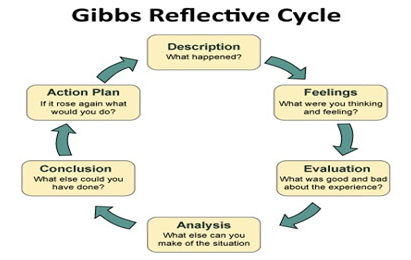
Gibbs's reflective cycle starts with the description and includes feelings, evaluation or assessment, analysis, conclusion and action plan. However, our nursing assignment experts have described each element of the Gibbs Reflective Cycle.
Stage 1: Description
The description is the first stage of Gibbs Reflection, which discusses the situation, activity, and experience. You can ask the following questions to understand the situation clearly.
- How did this happen?
- What happened actually?
- Where did this happen?
- What did others do?
- What did you do?
Stage 2: Feelings
The second stage is feelings which discuss the feelings experienced by the event. This stage also talks about the thoughts of an individual during the situation or incident. The only purpose behind knowing one's feelings is not to get a comment or detailed information on these. Always remember, you do not require to evaluate or judge emotions. The main purpose of this stage is to just get aware of a person's feelings. Here are a few lists of questions that can be asked to know a person's feelings:
- What did you observe when the situation takes place?
- Your experience during the situation
- Experience after the situation
- Current thinking about the event
It can be a difficult task to know the actual feelings of an individual. Thus, our experts offering assistance for mental health nursing reflection Gibbs say that you can also use perceptual position and empathic listening to identify the natural feelings.
Stage 3: Evaluation
This stage talks about the evaluation of Gibbs reflective model. Here, the students need to assess the methods worked and which didn't. You must imagine and analyse how things were when the incident took place, other people's reactions at the time of the incident, etc. The questions given below will help you in conducting the evaluation:
- Identify the positive thing about the event/ situation
- Analyse the positive and negative activity of the event
- The positive or negative contribution of the people
Stage 4: Analysis
This step helps in identifying what lesson has been acquired from the situation, activity or event. Based on prior experience, you may be able to perform well in a similar situation. You can also include optimistic as well as bad things experienced from the situation and then analyse it.
Stage 5: Conclusion
This stage discusses the situation and thinks about what else could be done in the same problem. Gibbs reflective cycle says that the information gathered while concluding can be a great way to be a better person.
Stage 6: Action Plan
This is the last stage of the Gibbs Reflective Cycle which includes things that can be practised in the same situation if it takes place in future. It also eliminates the negative things which were experienced last time at the event. A well-structured action plan assists you to become more effective than before.
Also Read: Clinical Reasoning Cycle Nursing Case Study Assessment Answers
What should be the word count of my Gibbs reflection?
The length of the reflection typically varies between 1000 to 1500 words but it also depends on the specific situation given by your supervisor. Nevertheless, you must treat each stage equally and ensure an optimum word count is maintained across your reflection.
You need to avoid both under-writing and overwriting so that the reflection produced is well-balanced and coherently structured. Given below is a general guide in the form of a table, which shows how much each section of the Gibbs reflective cycle should weigh:
|
Steps |
Percentage |
1000-word reflection |
1500-word reflection |
|
|
1 |
Description |
20% |
200 |
300 |
|
2 |
Feeling |
10-20% |
150 |
225 |
|
3 |
Evaluation |
20% |
200 |
300 |
|
4 |
Analysis |
30% |
300 |
450 |
|
5 |
Conclusion |
5-10% |
75 |
110 |
|
6 |
Action Plan |
5-10% |
75 |
110 |
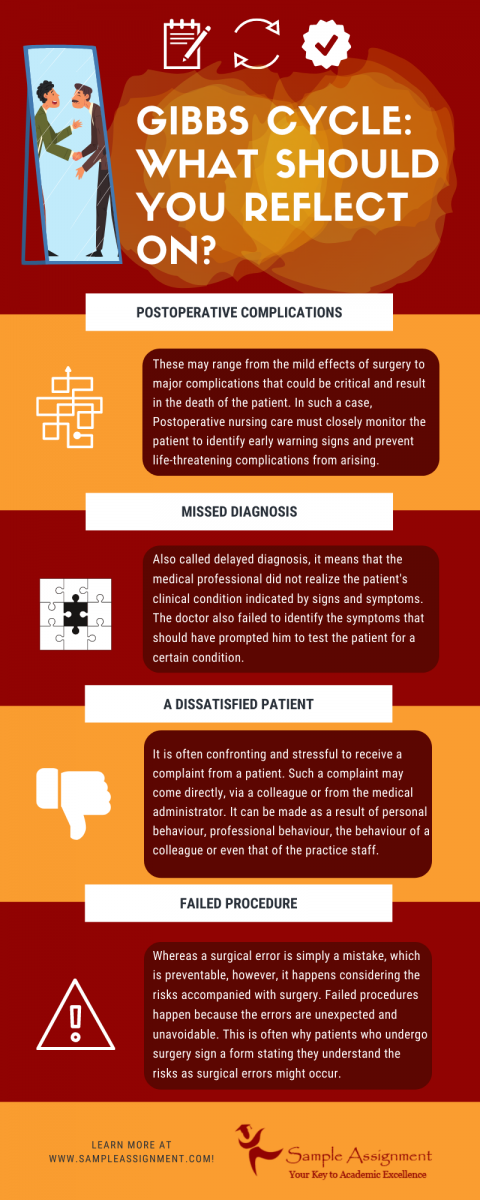
Here’s a Gibbs Reflective Cycle Example for Easy Understanding
Given below is a short example that will help you understand what each section of the reflective cycle looks like.
- Description: On most weekends, my friends and I get together at my place and cook some good meals for dinner. Today, I decided to host the evening and cook for them. I also have set up a projector in the dining room where we all will have dinner while watching a movie.
- Feelings: I was confident earlier but as I entered the kitchen to start my preparations, I felt nervous as I had never cooked for so many people before. In fact, two of my friends have excellent cooking skills and I was not sure if I could produce elaborate meals like them. The sun had set and my excitement turned into nervousness. I received compliments from all my friends although I was in a dilemma that the food may not be as good as I wanted it to be.
- Evaluation: Their compliments on my effort and dinner created a positive environment and I felt relaxed and happy soon after. But on the other hand, the steak was undercooked and so I had to cook it for an additional fifteen minutes. Also, the nutella pancakes were slightly overcooked and by 8 pm, we had run out of wine!
- Analysis: I enjoyed cooking all the meals after a long time. On reflection, I realised I should take the help of a timer while cooking for a large group of people. This will help me obtain better results in similar situations in the future.
- Conclusion: In retrospect, I would make more efforts to do things differently. This situation made me realise that planning skills are fundamental to a successful event. With proper planning and a timer, I would have cooked way better food.
- Action Plan: In the future and whenever I host a similar evening, I will seek some advice from an experienced individual. I will also read good blogs and guides available on the internet. I can plan and organise things in a better way and feel confident and comfortable in the run up to the occasion.
.png)
For more details about Gibbs Reflective cycle nursing or to know the Gibbs Reflective pros and cons, you are free to get in touch with Sample Assignment. Here you will find the experienced nursing assignment experts who are highly qualified and skilled in preparing assignments for Gibbs Reflective Cycle. So, don't worry and place your order with us immediately.
Order Now @ Upto 50% Off
Get
Flat 50% Off
on your Assignment Now!






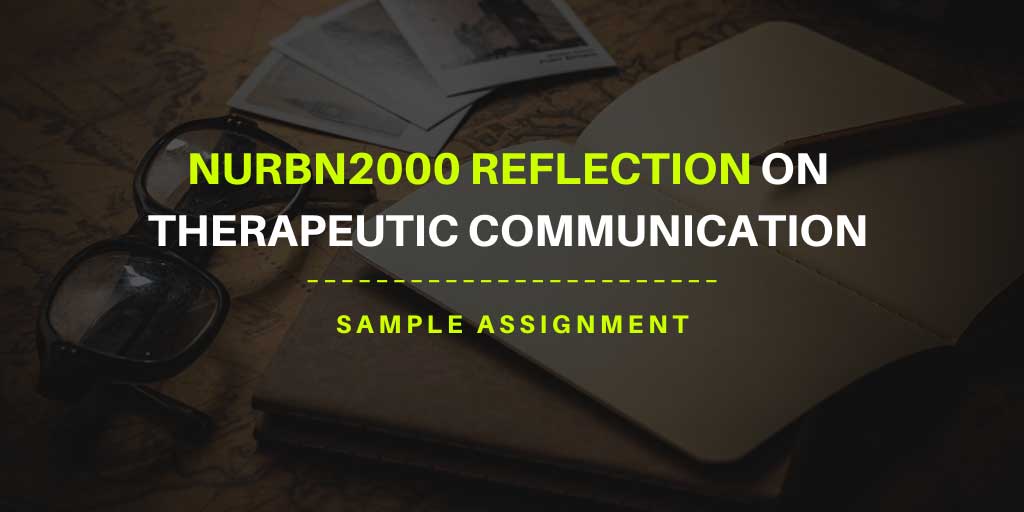

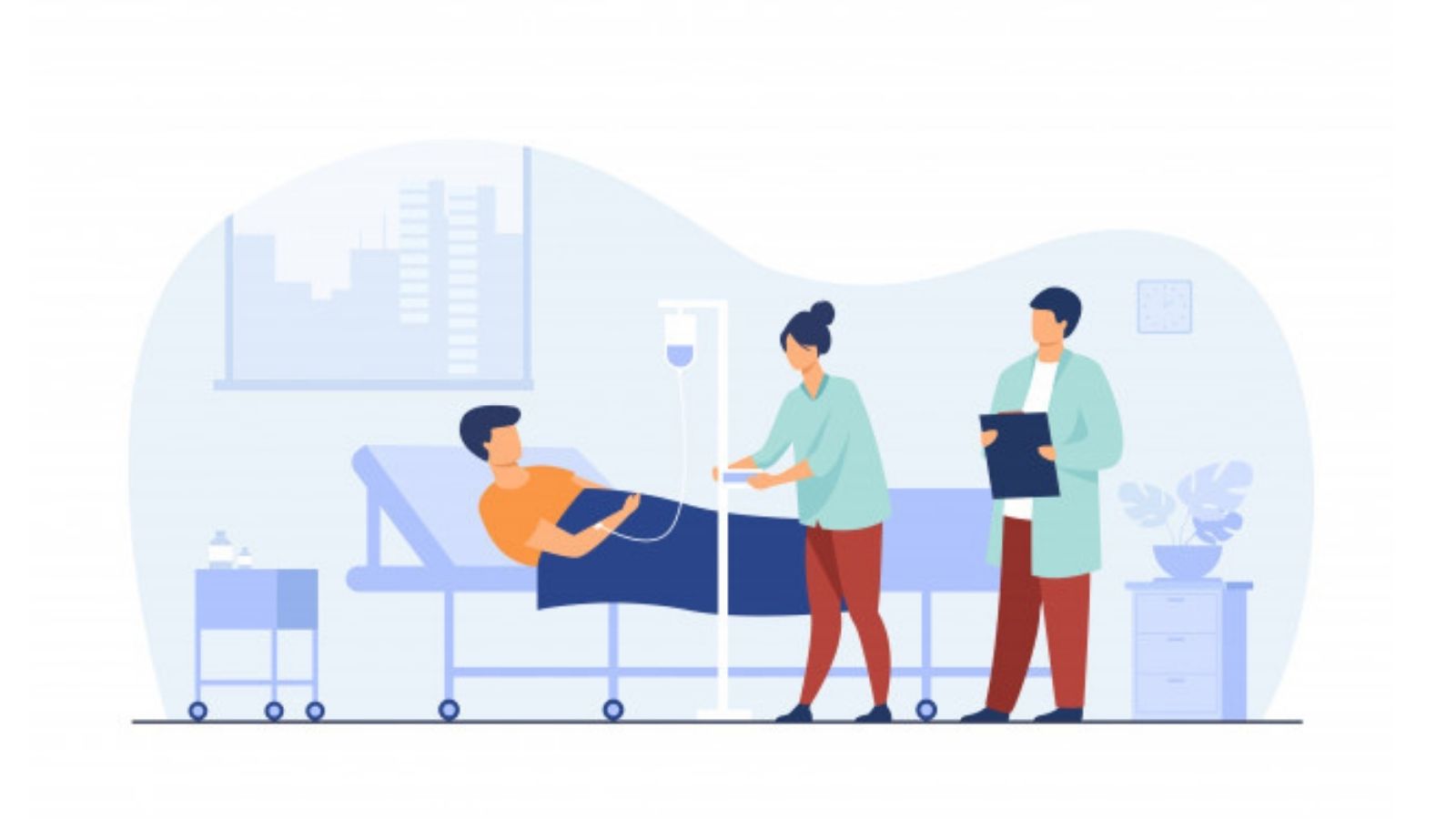






Loved reading this Blog? Share your valuable thoughts in the comment section.
Add comment